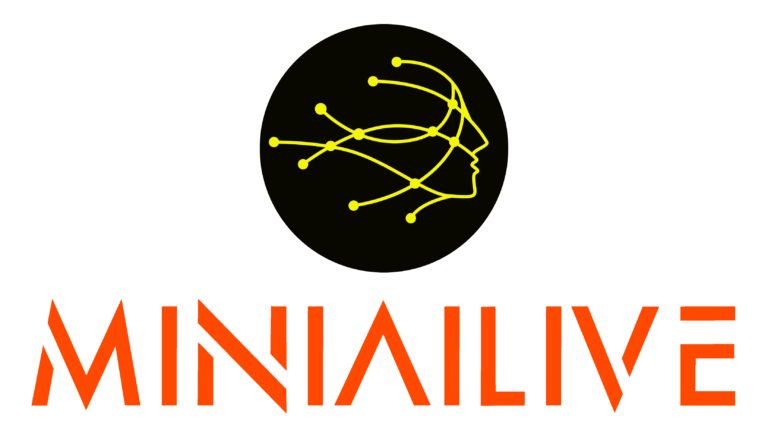Welcome to the MiniAiLive!
Welcome to the ID Document Recognition SDK! This SDK provides powerful tools for recognizing and extracting information from ID documents. The SDK is available for both Windows and Linux platforms and includes an API for integration.
Reduce drop-off and boost conversions with ID scanning and verification solutions. Quickly and securely capture, extract, and verify data from diverse ID cards, passports, driver’s licenses, and other documents with our proven, AI-first approach. Designed to fit seamlessly together, our technology can be integrated as a fully-bundled identity document verification solution or as separate modules via developer-friendly mobile or server SDK. Try it out today!
Note
- Our SDK is fully on-premise, processing all happens on hosting server and no data leaves server.
- 10,000+ document templates covering IDs issued in 200+ countries and territories.
- Support of 100+ languages and special characters via sophisticated neural networks.
- Python 3.6+
- Linux
- CPU: 2 cores or more
- RAM: 8 GB or more
-
Download the ID Document Recognition Linux Server Installer:
Download the Server installer for your operating system from the following link:
-
Install the On-premise Server:
Run the installer and follow the on-screen instructions to complete the installation. Go to the Download folder and run this command.
$ cd Download $ sudo dpkg -i --force-overwrite MiniAiLive-IDSDK-LinuxServer.deb
-
Request License and Update:
You can generate the License Request file by using this command:
$ cd /opt/miniai/dr-webapi $ sudo ./MiRequest request /home/ubuntu/Download/trial_key.miq
$ sudo ./MiRequest update /home/ubuntu/Download/trial_30.mis-
Verify Installation:
After installation, verify that the On-premise Server is correctly installed by using this command:
$ systemctl list-units --state running
If you can see 'Mini-drsvc.service', 'Mini-idsvc.service', the server has been installed successfully. Refer the below image.
-
POST http://127.0.0.1:8082/api/check_idID Document Recognition API -
POST http://127.0.0.1:8082/api/check_id_base64ID Document Recognition API -
POST http://127.0.0.1:8082/api/check_creditBank & Credit Card Reader API -
POST http://127.0.0.1:8082/api/check_credit_base64Bank & Credit Card Reader API -
POST http://127.0.0.1:8082/api/check_mrzMRZ & Barcode Recognition API -
POST http://127.0.0.1:8082/api/check_mrz_base64MRZ & Barcode Recognition API
- URL:
http://127.0.0.1:8082/api/check_id - Method:
POST - Form Data:
image: The image file (PNG, JPG, etc.) to be analyzed. This should be provided as a file upload.

- URL:
http://127.0.0.1:8082/api/check_id_base64 - Method:
POST - Raw Data:
JSON Format: { "image": "--base64 image data here--" }

The API returns a JSON object with the recognized details from the ID document. Here is an example response:
We have included a Gradio demo to showcase the capabilities of our ID Document Recognition SDK. Gradio is a Python library that allows you to quickly create user interfaces for machine learning models.
-
Install Gradio:
First, you need to install Gradio. You can do this using pip:
git clone https://github.com/MiniAiLive/ID-DocumentRecognition-Linux-SDK.git pip install -r requirement.txt cd gradio -
Run Gradio Demo:
python app.py
To help you get started with using the API, here is a comprehensive example of how to interact with the ID Document Recognition API using Python. You can use API with another language you want to use like C++, C#, Ruby, Java, Javascript, and more
- Python 3.6+
requestslibrary (you can install it usingpip install requests)
This example demonstrates how to send an image file to the API endpoint and process the response.
import requests
# URL of the web API endpoint
url = 'http://127.0.0.1:8082/api/check_id'
# Path to the image file you want to send
image_path = './test_image.jpg'
# Read the image file and send it as form data
files = {'image': open(image_path, 'rb')}
try:
# Send POST request
response = requests.post(url, files=files)
# Check if the request was successful
if response.status_code == 200:
print('Request was successful!')
# Parse the JSON response
response_data = response.json()
print('Response Data:', response_data)
else:
print('Request failed with status code:', response.status_code)
print('Response content:', response.text)
except requests.exceptions.RequestException as e:
print('An error occurred:', e)Feel free to Contact US to get a trial License. We are 24/7 online on WhatsApp: +19162702374.
Contributions are welcome! If you'd like to contribute to this project, please follow these steps:
1. Fork the repository.
2. Create a new branch for your feature or bug fix.
3. Make your changes and commit them with descriptive messages.
4. Push your changes to your forked repository.
5. Submit a pull request to the original repository.| No | Project | Feature |
|---|---|---|
| 1 | FaceRecognition-Linux | 1:1 & 1:N Face Matching |
| 2 | FaceRecognition-Windows | 1:1 & 1:N Face Matching |
| 3 | FaceRecognition-Docker | 1:1 & 1:N Face Matching |
| 4 | FaceRecognition-Android | 1:1 & 1:N Face Matching, 2D & 3D Face Passive LivenessDetection |
| 5 | FaceRecognition-LivenessDetection-Windows | 1:1 & 1:N Face Matching, 2D & 3D Face Passive LivenessDetection |
| 6 | FaceLivenessDetection-Linux | 2D & 3D Face Passive LivenessDetection |
| 7 | FaceLivenessDetection-Windows | 2D & 3D Face Passive LivenessDetection |
| 8 | FaceLivenessDetection-Docker | 2D & 3D Face Passive LivenessDetection |
| 9 | FaceLivenessDetection-Android | 2D & 3D Face Passive LivenessDetection |
| 10 | FaceMatching-Android | 1:1 Face Matching |
| 11 | FaceMatching-Windows-Demo | 1:1 Face Matching |
| 12 | FaceAttributes-Android | Face Attributes, Age & Gender Estimation |
| 13 | ID-DocumentRecognition-Linux | IDCard, Passport, Driver License, Credit, MRZ Recognition |
| 14 | ID-DocumentRecognition-Windows | IDCard, Passport, Driver License, Credit, MRZ Recognition |
| 15 | ID-DocumentRecognition-Docker | IDCard, Passport, Driver License, Credit, MRZ Recognition |
| 16 | ID-DocumentRecognition-Android | IDCard, Passport, Driver License, Credit, MRZ Recognition |
| 17 | ID-DocumentLivenessDetection-Linux | ID Document LivenessDetection |
| 18 | ID-DocumentLivenessDetection-Windows | ID Document LivenessDetection |
| 19 | ID-DocumentLivenessDetection-Docker | ID Document LivenessDetection |
MiniAiLive is a leading AI solutions company specializing in computer vision and machine learning technologies. We provide cutting-edge solutions for various industries, leveraging the power of AI to drive innovation and efficiency.
For any inquiries or questions, please Contact US













